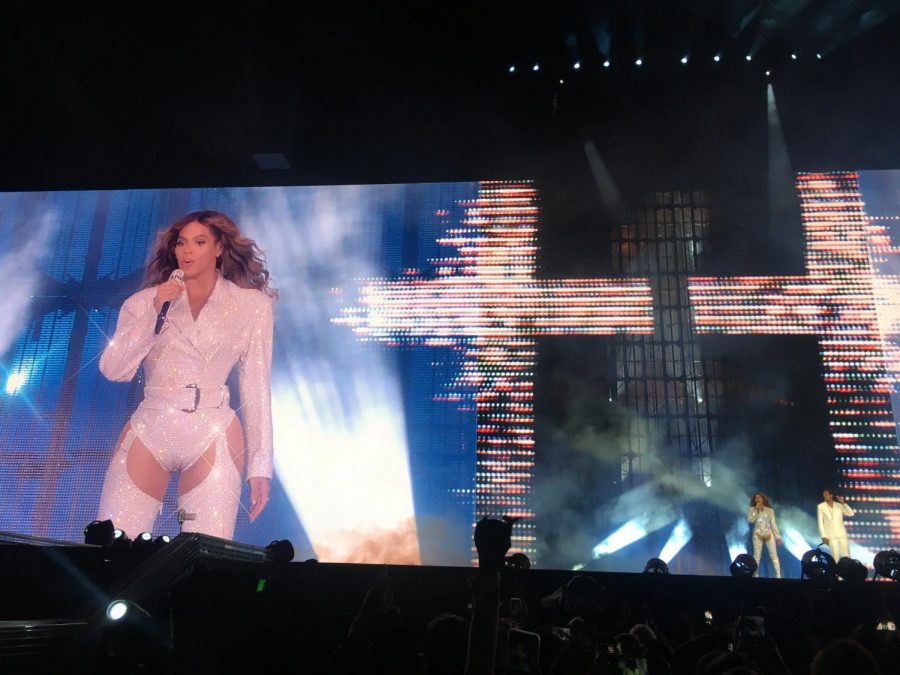A Change in Melody: Pop Concerts- Have they Changed?
From Queen and Eric Clapton, to Beyonce and Panic! At the Disco, live pop concerts have been quintessential emblems of global art appreciation and enjoyment for centuries. Within the past several decades, however, the financial burden of pop concerts has become increasingly demanding. To further examine the situation, I spoke to two avid music-lovers.
When I interviewed Dr. Aegerter and asked her if she’s observed any changes in the concert industry, she told me that “whether you’re going to the Opera or the Symphony, it’s becoming a privilege. How do we make the concerts available to everybody, and not just perpetuate privilege? Often nowadays when I go to an event, everyone looks like me. Where’s the diversity in the audience?” Dr. Aegerter also mentioned how in recent years, organizations like TeenTix have begun to battle economic disparities that prevent teens from exploring arts by offering five dollar tickets to a variety of art events. Jack S. ’19 noted how Bumbershoot, an annual Seattle-based music festival, has drastically changed over the years: “[The festival’s] popularity has grown for sure. The artists they book seem to be bigger and bigger names, and the energy gets better every year with more people coming. People of various groups participate and you have a wider range that enjoys the music. But the price used to be a bit more accessible.” Bumbershoot was started in August 1971 as an attempt to revive local spirits after the near economic collapse of Boeing. At its birth, the major goal of Bumbershoot was to improve Seattle’s social life as a whole, solely relying on a minimal city-fund and public donations. But ironically in recent years, the price for a three-day Bumbershoot pass has increased drastically, from $93 in 2014 to $235 last summer (see graphic). This change has occurred in a large majority of concerts. In 2018, the average price of a concert ticket during the first six months was $46.69: A 43% increase from ticket face value three years ago (Pollstar). One contributing factor has been technological advances in “scalping,” the notorious practice of bots buying hundreds or thousands of tickets, only to resell them to real fans at sometimes up to triple the original price. At this alarming rate of price increase, pop concerts may become a luxury that many cannot afford.
However, concerts offer an unforgettable experience full of empowerment and pure joy for those who are fortunate enough to attend them. I was lucky enough to interview several Lakeside concert-goers about their experience. One of Ms. Brau’s most memorable concert-going experiences involves her unplanned meeting of Brian May, lead guitarist of legendary band Queen. After she waited for hours at the secret back door, she was able to get a picture with him. (See photo). Ms. Brau, who has attended a multitude of concerts, told me that “the concerts are obviously about seeing the people. But also who you’re with. Just meeting the fans, who sometimes come from all around the world. It’s an eclectic group of people that are united by this person that’s on stage.” Gracie L. ’21 agrees: “There is just so much energy in the room, it leaves an imprint – it’s more than just the music; you’re there for the community. It’s an experience hard to replicate elsewhere.” Dr. Aegerter has two powerful anecdotes that embody this idea. Held in July 1985, Live Aid was a dual-venue benefit concert in which the most famous global artists at the time performed to raise funds for famine relief in Africa. Dr. Aegerter was one among the tens of thousands of audience members: “Just to know it was for a cause, as one of the first massive concerts to raise money. Because I’m from Africa it was an even more personal and poignant reason to attend. It was also fairly new for musicians to be using their artistry for matters of social justice.” Two days after 9/11, Dr. Aegerter attended a James Taylor concert – an event that was surrounded by uncertainty as to whether it would still go on. But amid this national devastation, Taylor performed, beginning his concert by acknowledging the tragedy and grief. His influence and pop music served as tribute to the 9/11 incident and a reminder of the hope that remained. Similarly, in June of 2017, Ariana Grande hosted a benefit concert in response to the bombings at her performance merely two weeks prior. Even during global tragedy and struggles, pop concerts have united the world in unimaginable ways. As millions of lives are enriched by these concerts, live pop music should be maintained as an accessible source of joy for as many people as possible.

